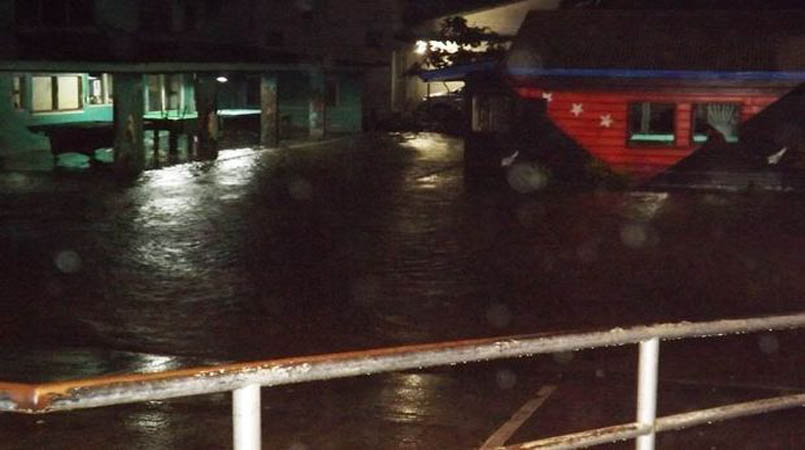
Tuni moved towards Niue after battering Samoa and nearby American Samoa with torrential rain that caused flash flooding and landslips.
Strong winds forced inter-island ferries to be cancelled until at least Monday.
On Sunday afternoon, the meteorological offices in both Samoa and Tonga cancelled their cyclone warnings, saying the threat had passed.
Filomena Nelson, a spokesperson for Samoa's Disaster Management Office, said flash flooding was reported across the island of Savai'i and in the capital, Apia, where the Vaisgano River burst its banks late on Saturday night flooding markets and shops, and forcing some residents to be evacuated.
"The residents were forewarned since Friday afternoon and they were also informed to move to their relatives in safer locations," she said. "But some remained so police and fire service were out there to help some of the families who were in harm's way."
She said crews had been working throughout the day on Sunday restoring power and water supplies and clearing landslips that had blocked access to much of the coastal road around the main island of Upolu.
However, she said the country appeared to have got off lightly: "It wasn't that bad compared to Cyclone Evan and past cyclones that we've had. It won't take that long to clear," she said.
Communities in American Samoa also spent Sunday cleaning up roads and villages scattered with debris by the passing storm.
The territory's Emergency Operations Center said it had reports of homes flooded in Tula, Amouli, Fagaitua, Amaua, Leloaloa, and the main town Pago Pago. There was a landslide at Fatu ma Futi, and debris blocked the road in several parts of the island.
Misaeli Funaki of the Fiji Meteorological Office said cyclone Tuni should begin to dissipate in the next couple of days as it heads towards the Cook Islands after passing Niue.
However, with a strong El Niño system gripping the Pacific region, drawing predictions of as many as 13 cyclones this season, authorities in all three countries say they need to remain prepared.
